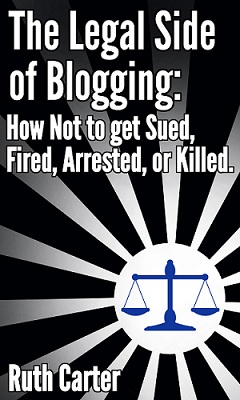If you outsource any of your content creation (blog, photos, videos, etc.) you need to read this.
A lot of business professionals have the misconception that if they pay for something, they automatically own it. If your marketing department or employees create your content, that’s true. The company will own the copyright in (and actually be the author of) everything your employees create within the scope of their employment.
That is not always the case when you use third party contractors to create content for your company. If you don’t have a contract with your independent contractor, the law says the contractor owns the copyright in whatever you’ve hired them to create. You only get an implied license to use the content. The contractor can stop you from using the content in a different way than the original project.
If you find yourself in that situation where you thought you owned the contract but you only had a license and you wanted to become the copyright owner, you would need to have the contractor sign a copyright assignment to give it to you. This is a contract that must be in writing. And since the contractor owns the copyright, it’s his/her prerogative to charge whatever they want to assign it to you. So that means they can basically make you pay for the same work twice.
So how do you avoid being in this situation? When you work with independent contractor, you need a solid contract for each project that explains what you’re hiring them to create and who will own the final product. Many contractors I’ve worked for have requested contracts that state that the hiring company only owns their work product when the company has paid its bill in full. If the company doesn’t pay its bill, the company doesn’t own the content and the contractor has legal recourse to prevent the company from using their work.
 If you work with independent contractors on a regular basis, consider having a lawyer create a contract template for you to ensure that the document is complete and that all your interests are protected.
If you work with independent contractors on a regular basis, consider having a lawyer create a contract template for you to ensure that the document is complete and that all your interests are protected.
If you need a legal resource for laymen on this topic, I recommend my book, The Legal Side of Blogging: How Not to get Sued, Fired, Arrested, or Killed. It covers a lot of the major issues that apply to copyright and the internet. If you want to chat more about this topic, feel free to connect with me on Twitter, Facebook, YouTube, LinkedIn, or you can email me.
Please visit my homepage for more information about Carter Law Firm.

